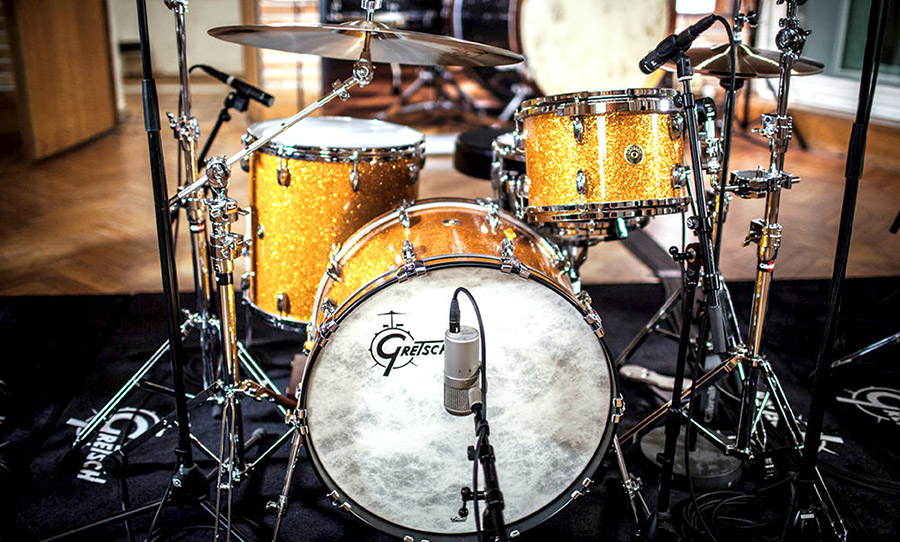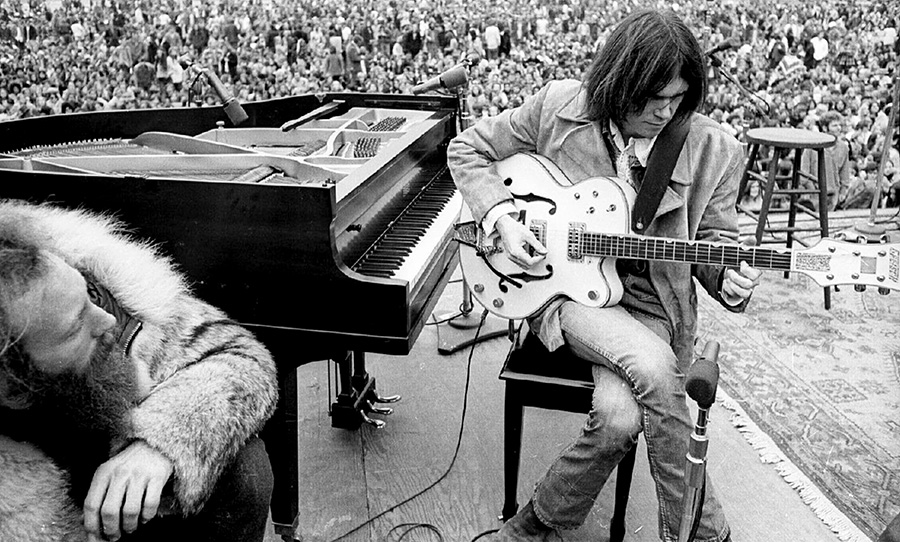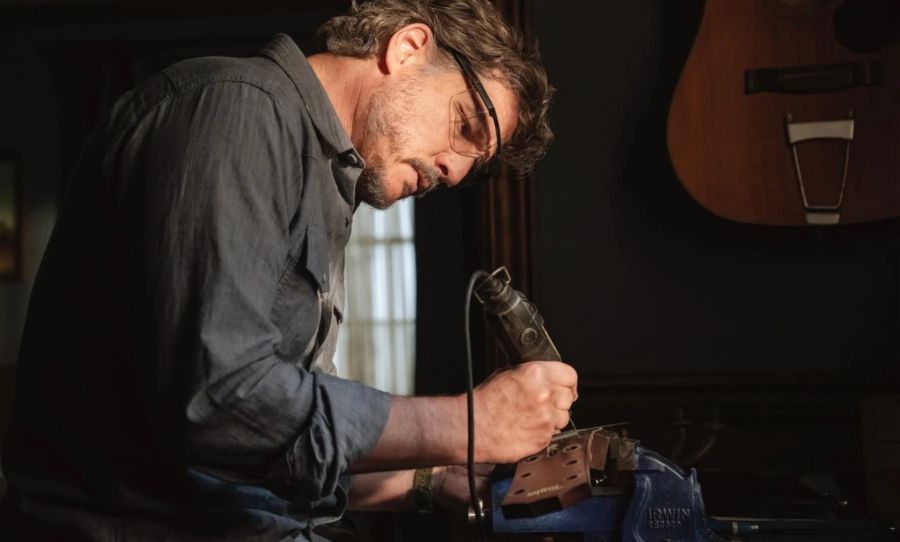Family values aren’t generally something you expect in a massive company. Gretsch however, has them at the core of their foundation.
Gretsch is a company that has rightfully earned its place as one of the big dogs in the world of musical instruments. Boasting an unmistakably classic style and sound, the American company has woven a legacy of pioneering design that has seen them grow from a small local music shop to an infamous titan of tone.
Emphasising quality hand-craftsmanship has been of utmost importance to the company from the very beginning, resulting in over a century of expanding on what artists can achieve when given the right tools. With their instruments now sitting pretty in the hands of acclaimed acts around the globe, Gretsch have truly grown from their humble beginnings, and show no plans to stop anytime soon.

The family business
Gretsch was founded in 1883 by a 27-year-old German immigrant by the name of Fredrich Gretsch, beginning as a small music shop in Brooklyn, New York who made banjos, drums, and tambourines. However only 12 years later, in 1895, Fredrich Gretsch passed away, leaving his company and musical legacy to his teenage son Fred.
While the acquisition of a business is a daunting task for the average teenager, Fred took the new opportunity in his stride, and under his leadership, grew the company into one of the USA’s leading manufacturers and importers of musical instruments. By 1916, operations had move to a 10-storey building located at 60 Broadway in Brooklyn.
Fred knew that the key to developing the Gretsch brand was a customer focus. While already a developed manufacturer of drums, the public was requesting the company make guitars. So that’s what they did, initially offering arch-tops targeting jazz musicians and flat tops for country musicians.
After Fred passed on the company to his two sons, Fred Jr. and William Gretsch in 1948, Gretsch began creating guitars with custom colours and finishes, making them the first company to do so. The brand continued to grow with endorsements from famous artists such as Chet Atkins and The Beatles.
Noticing the family-owned company’s success, Baldwin Manufacturing bought Gretsch in the late 1960s. While this was done with the aim of expansion, Baldwin failed to recognise the importance of the psychedelic era and never transitioned the brand’s image accordingly, resulting in a dark period for Gretsch.
Fred W. Gretsch (Fred Jr.) had vowed, ever since he sold the company, that it would one day return to the family. In 1984, Fred Jr. bought Gretsch back from Baldwin and rejuvenated the company through the successful release of new models and quality reissues.
Today, Gretsch is manufactured and distributed through Fender, allowing more and more musicians from around the globe access to these classic instruments. While much has changed over the long Gretsch timeline, the company’s priority remains to be creating high-quality instruments with a distinct image and sound.
Expanding the Gretsch family
A consistent eye for quality and their signature style resulted in timeless artists reaching for Gretsch instruments. Jazz drumming legend Tony Williams was known to be inseparable from his Gretsch kit, with its distinctive bright yellow finish becoming as recognisable as his own drumming style.
Similarly, Taylor Hawkins of the Foo Fighters is a well-known Gretsch player, often seen playing mismatched Gretsch shells to form his own Franken-kit.
The list of artists with their hands proudly wrapped around the neck of a Gretsch guitar is equally as impressive. Rock pioneer Eddie Cochran was an early endorser of Gretsch, often seen playing the large hollow body 6120. Also flying the Gretsch flag was the late AC/DC guitarist Malcolm Young. Young was known for his rhythm role, adding an extra layer of kick-ass to the Aussie band, his weapon of choice being the G6131.
Standing out from the crowd
While Gretsch’s drums and guitars are advertised separately under the same family name, both divisions share the concept of offering unrivalled quality and style. Gretsch’s signature line of drums, the USA Custom, allows the customer to order the exact layout and style they would like, all made up of the company’s classic 6-ply maple/gum shells, ensuring that every kit is able to offer the player versatility as well that classic Gretsch sound.
The quality is consistent when it comes to Gretsch Guitars as well. While they offer an expansive lineup of axes at various budgets, their custom shop is where their “time-honoured legacy reaches its creative apex”.
The custom shop truly allows the customer complete control over their sound, with the best luthiers available to handmake guitars to the exact specifications of the purchaser. Giving customers the ability to have exactly what they want – whether it be a one-off, super unique guitar, or a specific artist recreation – continues the company’s legacy of putting the players first.
Gretsch truly are the instrument manufacturer that does it all, prioritising the customer and delivering their very distinct sound and image. With quality ingrained into their history, the family-based company combines the old with the new, resulting in instruments that go above and beyond.



